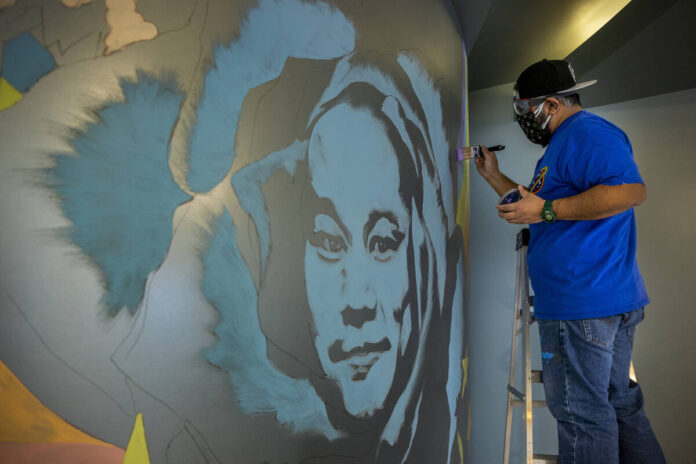The Unconventional Will of Tony Hsieh: A Probate Lawyer’s Perspective
Elyse Tyrell, a seasoned probate lawyer in Southern Nevada with over 30 years of experience, has encountered myriad wills throughout her career, but nothing could prepare her for the unconventional testament of Tony Hsieh, the former CEO of Zappos. Hsieh, who died tragically in 2020 at the age of 46 in a house fire in Connecticut, left behind a will that has raised eyebrows and sparked legal controversy.
A Convoluted Document
Upon reviewing Hsieh’s last will and testament, Tyrell found it perplexing and convoluted, noting it did not adhere to key estate-planning principles typically followed by legal professionals. “This is clearly something he wrote himself,” she remarked, highlighting its deviation from standard practices in will preparation. Rather than offering clarity and structure, the document seemed to complicate matters, prompting legal experts to label it as an anomaly within the probate domain.
Unfolding Legal Drama
Hsieh’s estate has been embroiled in a protracted legal battle, largely because of conflicting statements regarding the existence of a will. Officially, Hsieh’s father has maintained in court filings that his son died intestate, meaning without a valid will. However, in a surprising turn of events, attorneys unconnected with the family revealed on April 17 that they had found a purported will along with a letter detailing its unexpected discovery.
This revelation added another layer to the ongoing saga, prompting questions about its validity and the true intentions behind Hsieh’s estate planning. The need for clarity became pressing, as the discourse surrounding Hsieh’s legacy took an unexpected twist.
The Peculiar Features of Hsieh’s Will
Legal experts reviewing the document have pointed out various unusual features. According to Tyrell, one significant red flag was the will’s references to a “precautionary, alternate and contingent unrevoked prior Will.” This terminology suggests a prior will could take effect if the newer version were contested or proved to be invalid, a concept that Tyrell indicated is not customary in legal practice.
Moreover, the will specified that Hsieh intended to leave a substantial amount of money—at least $2 million—to his family, with specific allocations of $500,000 each to his parents and two brothers. Yet, it paradoxically stipulated that they might receive only $10 each, along with an additional 10 bucks placed in trust for their benefit, which raises questions about Hsieh’s true intentions toward his family and adds complexity to the estate’s potential distribution.
Language and Structure at Odds with Tradition
Attorney Kennedy “Kenny” Lee shared his perspective on the odd phrasing within the will. He noted that phrases like “Execution Number One of Version Number Two” and references to backup documents are seldom, if ever, seen in traditional estate planning. Such language creates ambiguity and makes discerning Hsieh’s genuine intentions difficult. The lack of straightforward legal jargon often employed by attorneys further underscores the document’s unusual nature.
Potential for Legal Complications
Cincinnati lawyer Jay Brinker echoed concerns regarding the document’s validity, highlighting the “oddities” that peppered its language. Even while acknowledging that a prior will might be considered under specific legal circumstances, he stressed that such a convoluted approach could fuel litigation if executors do not adhere to the will’s expressed wishes. His insights imply that this case could invite extensive scrutiny and dispute, potentially pitting family members against one another in a battle over Hsieh’s estate.
The Mystery of the Document’s Origin
Adding to the intrigue, the recently uncovered will was discovered among the possessions of Pir Muhammad, a late acquaintance of Hsieh who had been diagnosed with Alzheimer’s disease and was reportedly unaware of Hsieh’s passing. Muhammad had been designated as an executor in the will, receiving exclusive possession of the original document—presumably to safeguard it against destruction. The circumstances surrounding the discovery only add another layer of mystery, questioning whether Hsieh’s intent and wishes were fully understood or properly executed.
The Nature of a ‘Pour-Over’ Will
The document in question is classified as a “pour-over” will, which traditionally directs that remaining assets be transferred into a trust upon the owner’s death. However, Hsieh’s will deviates from this norm by also including directives for monetary donations to charities, an added complexity that indicates his estate planning was broader than typical pour-over arrangements.
In summary, Tony Hsieh’s last will and testament reflects a stark departure from traditional estate planning, raising questions about its validity, the intentions behind its creation, and the potential fallout for his family and estate. Legal professionals continue to navigate this intricate situation, shedding light on the often-unpredictable nature of wills when the balance between personal intent and legal convention is disrupted.
